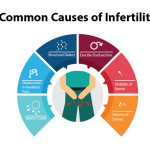Navigating the intricate world of taxation requires expertise and knowledge. Whether you are an aspiring tax professional, a business owner, or simply someone who wants to understand taxes better, selecting the best courses for taxation is crucial. In this article, we will discuss the factors to consider when choosing corporate tax preparation course to ensure you make the right choice.
Accreditation and certification:
When searching for the best courses in taxation, prioritize those offered by accredited institutions or recognized professional organizations. Look for programs that lead to certifications such as Certified Public Accountant (CPA), Enrolled Agent (EA), or Certified Tax Professional (CTP). These certifications enhance your credibility and employability in the tax industry.
Course content and specialization:
The best taxation courses cover a wide range of tax-related topics, including federal and state taxation, international tax laws, and tax planning. Consider your specific interests and career goals when choosing a course. For example, if you are interested in corporate taxation, look for courses that offer specialization in this area.
Faculty and industry expertise:
Evaluate the qualifications and experience of the instructors or faculty members who will be teaching the course. Instructors with real-world experience in tax law, accounting, or finance bring practical insights that can significantly benefit your learning experience. Look for courses with faculty who have a strong background in taxation.
Reviews and recommendations:
Seek out reviews and recommendations from students who have completed the course. Online platforms like Course Report and student testimonials on course websites can provide valuable insights into the quality of instruction, course materials, and overall satisfaction.
Cost and financial aid:
Consider your budget when choosing a taxation course. Some programs offer financial aid, scholarships, or payment plans to make education more accessible. Compare the cost of different courses and weigh them against the potential benefits, such as increased earning potential and career opportunities.
Continuing education and updates:
The field of taxation is constantly evolving due to changes in tax laws and regulations. Choose courses that offer ongoing education or updates to ensure you stay current in the field. This is especially important for tax professionals who need to provide up-to-date advice to clients.












